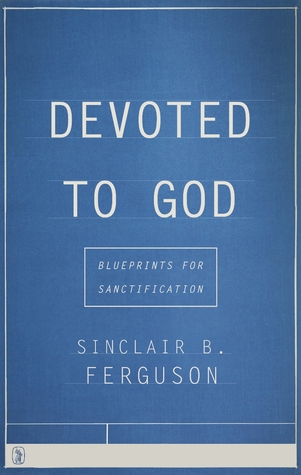How many books by J.C. Ryle did I read this month? I read two books by J.C. Ryle.
- Coming Events and Present Duties. J.C. Ryle. 1879. 150 pages. [Source: Bought]
- Five English Reformers. J.C. Ryle. 1890. 150 pages. [Source: Bought]
Favorite quote(s) by J.C. Ryle:
We are constantly sowing seeds which will spring up and bear fruit, every day and hour in our lives. There are eternal consequences resulting from all our thoughts and words and actions, of which we take far too little account.Am I keeping up with my Morning and Evening devotional by Charles Spurgeon? Yes. But barely. Today I read January 28th through 31st. Still being behind just by a few days is better than being behind by a week or two!
Favorite quote(s) by Charles Spurgeon:
- O for grace to study the Bible with Jesus as both our teacher and our lesson!
- Enjoying God: Finding Hope in the Attributes of God. 1987/2017. 242 pages. [Source: Review copy]
- What Can We Know About God? R.C. Sproul. 2017. Reformation Trust. 53 pages. [Source: Review copy]
- Can I Trust the Bible? (Crucial Questions #2) R.C. Sproul. 2009. Reformation Trust. 65 pages. [Source: Free download]
- Can I Have Joy In My Life. (Crucial Questions Series #12) R.C. Sproul. 2012. 66 pages. [Source: Free download]
Favorite quote(s) by R.C. Sproul:
“Rejoice in the Lord always” (Philippians 4:4a). This is one of those biblical imperatives, and it leaves no room for not rejoicing, for Paul says Christians are to rejoice always—not sometimes, periodically, or occasionally. The key to the Christian’s joy is its source, which is the Lord. If Christ is in me and I am in Him, that relationship is not a sometimes experience. The Christian is always in the Lord and the Lord is always in the Christian, and that is always a reason for joy. Even if the Christian cannot rejoice in his circumstances, if he finds himself passing through pain, sorrow, or grief, he still can rejoice in Christ. We rejoice in the Lord, and since He never leaves us or forsakes us, we can rejoice always.Did I read any Puritans or Reformers this month: I read about Reformers.
- Five English Reformers. J.C. Ryle. 1890. 150 pages. [Source: Bought]
Favorite quote(s):
- Take away the Gospel from a Church and that Church is not worth preserving. A well without water, a scabbard without a sword, a steam-engine without a fire, a ship without compass and rudder, a watch without a mainspring, a stuffed carcase without life,—all these are useless things. But there is nothing so useless as a Church without the Gospel.
Other Christian nonfiction books read this month:
- Kiss the Wave: Embracing God in Your Trials. Dave Furman. 2018. Crossway. 160 pages. [Review copy]
- Good News: The Gospel of Jesus Christ. John MacArthur. 2018. Reformation Trust. 148 pages. [Source: Review copy]
- Spurgeon On the Christian Life: Alive in Christ (Theologians on the Christian Life) Michael Reeves. 2018. Crossway. 192 pages. [Source: Review copy]
- Reading the Bible with Rabbi Jesus. How a Jewish Perspective Can Transform Your Understanding. Lois Tverberg. 2018. Baker Books. 288 pages. [Source: Review copy]
- Devoted to God: Blueprints for Sanctification. Sinclair B. Ferguson. 2016. Banner of Truth. 296 pages. [Source: Library]
Christian fiction books read this month:
1. The Promise of Dawn. Lauraine Snelling. 2017. Bethany House. 386 pages. [Source: Review copy]
2. Where We Belong. Lynn Austin. 2017. Bethany House. 480 pages. [Source: Review copy]
3. The Lacemaker. Laura Frantz. 2018. Revell. 416 pages. [Source: Review copy]
4. The Chapel Car Bride. Judith Miller. 2017. Bethany House. 352 pages. [Source: Review copy]
How many "new" books did I read (published 2000-present)? 12
How many "old" books did I read (published before 2000)? 3
Which book was my overall favorite?
- Spurgeon On the Christian Life: Alive in Christ (Theologians on the Christian Life) Michael Reeves. 2018. Crossway. 192 pages. [Source: Review copy]
© Becky Laney of Operation Actually Read Bible













